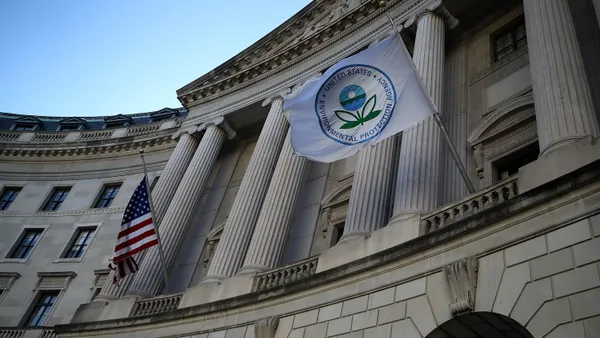Dive Brief:
- Following the National Labor Relations Board's Dec. 14 decision to reverse the 2015 Browning-Ferris Industries joint employer standard, supporters want to take it a step further and pass the "Save Local Business Act." Some of the highest profile advocates include Sen. Lamar Alexander, chair of the labor committee, and the International Franchise Association (IFA).
- The National Waste & Recycling Association feels similarly and will continue to support further action on joint employer. "Obviously we are pleased with the decision reached by the NLRB and welcome any legislative efforts to codify the current definition," said NWRA Director of Communications Brandon Wright.
- Among those that want to see this happen, a main concern is that the five-member NLRB has become too subject to changing administrations. Under President Obama it took a more aggressive stance on such issues. Under President Trump it has gone in a different direction. After one member's term just expired the NLRB is back to a partisan split. "It becomes increasingly politicized and no precedent is safe," said Trey Kovacs, policy analyst for the Competitive Enterprise Institute.
Dive Insight:
This current policy debate may have originated at a California MRF, but it has grown far beyond just affecting the waste and recycling industry. While supporters of the BFI joint employer standard argue it never had anything to do with fast food restaurants, and was only about the rights of temporary MRF sorters, McDonald's and other franchise chains have become the face of this issue. The IFA has become involved in a big way and is now calling further legislation "the only way the franchise sector can remain the job creating and economic opportunity generating powerhouse that it has always been."
The main argument behind still needing legislation is that it would harmonize definitions of "direct and immediate" control under both the National Labor Relations Act and the Fair Labor Standards Act. This dictates the level of responsibility employers have for subcontractors (such as temporary workers) and franchisees. The NLRB used a case about Iowa construction contractors as the hook for its recent decision, showing the breadth of this discussion.
Prior to the NLRB decision, H.R. 3441 was passed along party lines in the House last month. Though even its most ardent supporters recognize that the odds of this bill coming up in the Senate any time soon are slim, given the packed and urgent schedule Congress has at the end of the year. In the meantime, the labor world will also be watching to see how the D.C. Circuit Court deals with the NLRB, now that an expected decision on the BFI case may be less relevant.
Even if legislation doesn't come to pass, it's now seen as less likely that the BFI standard or one like it could ever come back. Yet opponents still see cause for concern and a need for companies to reevaluate their employment liabilities after the new decision.
"I think a future NLRB with a different approach to the law certainly is going to push the limits further," said Mark Kisicki, an attorney involved in the original BFI case and a shareholder at the firm Ogletree Deakins. "Use it as a wake-up call. Evaluate your operations and make sure if you're going to enter into a situation that exposes you to risk of joint employment, understand what that risk is and if you can try to modify it."
Franchise arrangements are less common in the waste industry, but subcontracting is not. This may become even more relevant as MRF operators look to temporary labor as a way to staff up and meet China's new contamination standards. Labor groups continue to make the case that these jobs should be full-time positions whenever possible.
Whether employers choose to expand their use of outside labor following the reversal of this standard, or create new full-time positions that aren't liable to such questions and could be funded by the expected tax reform windfall, will become more clear in 2018.










